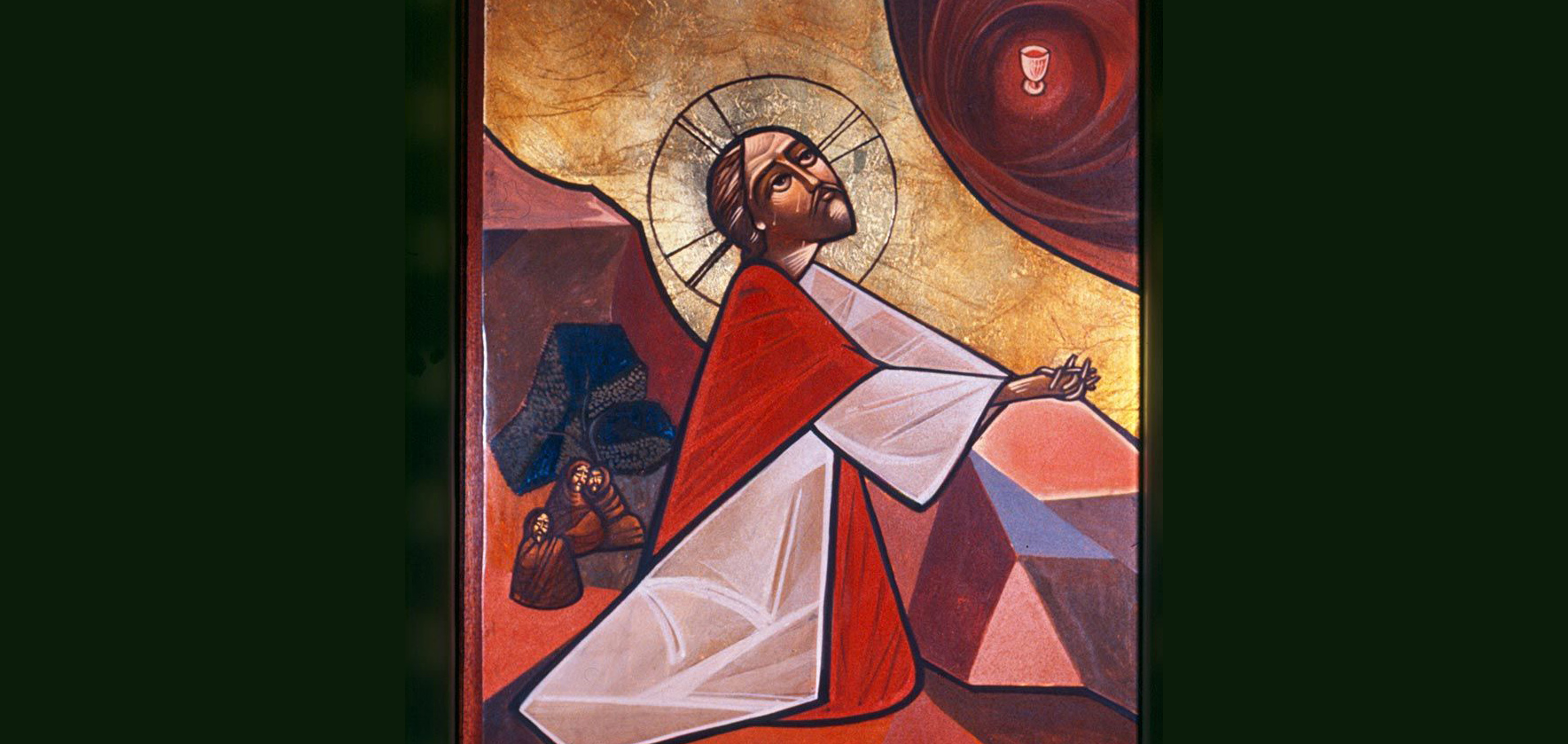
12 Feb All That I Have
Rebekah McLeod is married to Richard and mother to Magdalena (4), Ramona (2), and Rosanna (5 months). She is an alumnus of the Residential Internship (2007/08), studied Biomedical Science, and now works part-time as a chaplain at Carmel College, a Catholic girls high school in Auckland. Rebekah is currently on maternity leave and preparing to send her oldest girl to school this year, amidst changing nappies, battling baby-brain, and assisting in her local parish with children’s liturgy of the word.
The guitars strummed endlessly as the famous refrain of the John Michael Talbot song “I Surrender” belted out in the prayer meeting. Could I bring myself to do it? To fall on my knees alongside the other worshippers and really make that step of commitment and faith—offering my entire future to Christ? I was at World Youth Day in Sydney in 2008 with half a million other pilgrims, and I was searching for my direction in life. I’d been thinking about entering religious life (becoming a nun) for a couple of years during university but hadn’t made any firm steps in that direction. This was the moment of decision. After a prolonged internal fight, I realised I had nothing else to lose. I went forward, knelt down, and really prayed those words: “Take all my freedom, my liberty, my will. All that I have, you’ve given to me, so I offer it all to you.”
This event set me on a journey of several years that helped me understand more what it means to relinquish my plans to God and submit to his will. To relinquish means “to withdraw or retreat from; to leave behind.” Submission means “yielding to the superior force, will, or authority of another person.” In that critical moment, I experienced both a relinquishing of myself and my plans (and the scary uncertainty that comes with that) as well as a choice to submit those plans to a “superior force,” namely God. Strangely, I felt free.
Contrary to popular belief, the notion of relinquishing our wants and submitting to another involves an active decision of the will rather than a passive surrender to the power of another person. This is especially played out in marriage. You’ve all heard the saying, “love is a decision.” True marital love involves a conscious decision to relinquish and to submit—by both parties. I choose to submit; I choose to relinquish. No one is forcing me. I’ve discovered this paradox in my own marriage. Learning to submit to each other helps us overcome our natural drive to be right, to be heard, and to be praised. In relinquishing our own preferences, we come to experience the fruits of bringing joy to each other.
During Lent, we prepare for Holy Week and Easter by “relinquishing” certain things; food, coffee, alcohol, social media, and listening to the radio are common examples. Why? There are many reasons, but I have found there is something powerful about the practice of going without those comforting rituals. By going without, I suddenly realise how dependent I have become on them, and it forces me to turn my appetite or affection elsewhere—towards God and the reason I had relinquished them in the first place. I might imagine Christ, bruised and broken, suffering thirst, hunger, and exhaustion on his way to the Cross. Has Christ already taken upon himself this suffering for me? Yes. but I’m also reminded of the Apostle Paul’s words in the Letter to the Colossians 1:24: “I am glad when I suffer for you in my body, for I am participating in the sufferings of Christ that continue for his body, the church” (NLT). Growing up, my mother would often say, “Offer it up!” when we would complain about small inconveniences. Whilst somewhat trite, the saying represents a truth to me and many Catholics: by offering my small sufferings to Christ on the cross (by relinquishing my hold on them and submitting willingly to the suffering instead of trying to escape it), I am mysteriously able to assist Jesus in his work of redemption. So, for me, suffering is never wasted if I can place it at the foot of the cross and unite it to the suffering of Jesus.
At no time is this more real to me than after the birth of each of my children: the exhaustion and pain of pregnancy and labour; the total sacrifice of my body and my figure; the sleep deprivation; midnight nappy changes; and pulling myself out of bed to attend to them in the middle of the night. Relinquishing. In these moments, I have learned to pause, close my eyes, picture Christ on the cross, and say, “yes.” I choose to relinquish myself, and I choose to submit my will because God knows better than I do what I need.
(Image: “Jesus in Gethsemane,” Coptic Icon, by Isaac Fanous, 1978)

